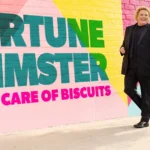Fall movie season is upon us, so that means fewer blockbuster comic book, sci-fi and horror movies, and more attention to the avant-garde and Oscar hopefuls. Here’s what’s coming soon to a cinema near you.
Jojo Rabbit
Kiwi director Taika Waititi is on a hot streak. His second film, Boy, was a well-received indie full of heart and laughs. His third film, What We Do in The Shadows, was a savagely funny vampire mockumentary later turned into a TV series. His Hunt for The Wilderpeople was a surprising mix of family-friendly yet terrifically funny fare. And the hilariously fresh Thor: Ragnarok saw Taika take a seat at Marvel’s mighty table. Now, Waititi wakes on the Nazis. Making light of the Nazis in film is nothing new. Charlie Chaplin took a swing (The Great Dictator). Mel Brooks did too (To Be or Not To Be). Roberto Benigni (Life is Beautiful) and Quentin Tarantino (Inglorious Basterds) dabbled as well.
The trick is to include enough truth about how deadly horrible they could be. Jojo Rabbit does that. Doubtless many consider any movie dealing with the Nazi era through a lens of humor to be anathema. But if you can handle it, Jojo Rabbit will make you laugh and cry. With the sunny and quirky, storybook air of a Wes Anderson film (I’ve heard Jojo referred to as “Moonriech Kingdom”) Waititi tells the story of bright-eyed little Jojo (played with sparkling appeal by newcomer Roman Griffin Davis) as he aspires to be just like Adolph Hitler. Jojo even makes Hitler his imaginary friend (played hilariously by Taika himself).
But little Jojo doesn’t do too well under his instructor (Sam Rockwell). Alfie Allen (Game of Thrones) and Rebel Wilson (Pitch Perfect) play some of Rockwell’s goofy Nazi cohorts and provide some good laughs. But as Jojo’s mom, Scarlett Johansson brings much of the heart to the film, especially when her secret is revealed. The Word: A delightful funny film that encourages you to laugh even as it insists that you never to look away from the horror of human cruelty.
Read Next | Gay Shows: The Best Queer and LGBT Content on Here TV This Week
Portrait of a Lady on Fire
This wonderful winner of the Queer Palm at Cannes is an exquisitely nuanced story of lady-love between an artist and the young woman whose portrait she’s commissioned to paint. Marianne (Noémie Merlant, Heaven Will Wait) arrives on a lonely island in a small boat. Her tenacity is palpable, even under her drenched dress. The mistress of this bleak estate is played by Valeria Golino (Rain Man, Hot Shots) — her beauty scarcely diminished since the ‘80s.
She mentions her daughter will soon marry a rich stranger, but there’s an intense sense of mystery surrounding the girl. When Héloïse (Adèle Haenel The Unknown Girl) appears, her fiery, beguiling nature does not disappoint. Soon the artist’s probing gaze is filled with the image of a woman caught between her familial duties and her defiant spirit. When the women recognize the intelligence and passion they both possess, their love ignites.
Yet passion so potent can only last so long. Director Céline Sciamma (Tomboy, Girlhood) crafts a period love story grounded in beatific moments of womanhood that also soars with high-minded concepts and intricately woven themes. Poetic yet marvelously accessible, this film shows how only love that is fleeting can truly be eternal. The Word: Two absolutely captivating leads and Sciamma’s rapturous truth-telling make this French film a must-see.
Read Next | NYC Bath Houses Are Back, and Gay Men Are Cruising Them Once More
Cunningham
As Wim Wenders’ 2011 knockout film Pina so aptly displayed, dance documentaries are better in 3D. Of course this means if you don’t happen to have such a entertainment system sitting around at home, you’ll have to get yourself to a proper cinema. But this detailed and intimate look at the life and career of influential and groundbreaking choreographer Merce Cunningham will reward your effort. The film draws from a wealth of archival footage, then adds to those with notes and arrows like an artist’s journal.
Director Alla Kovgan provides a remarkable, rich look at Cunningham’s work. While the film leans into a career that stretches from 1944 to 1972, Cunningham continued to be active until his death in 2009 at age 90. Accompanying the archival (often black and white) footage of Cunningham and collaborators are wonderfully colorful modern restagings of famous pieces. There are some heavy hitters among those aforementioned collaborators. Foremost is legendary experimental composer John Cage, who shared a romantic relationship with Cunningham, in addition to providing music to his movement. We also hear a lot of Cunningham and Cage talking, which adds another level of intimacy to an already impressive film.
Robert Rauschenberg also designed the sets for performances; Jasper Johns and Roy Lichtenstein did as well. Andy Warhol contributed, too. Don’t miss the silver-inflated pillows he designed to be kicked by the dancers as they flitted across the stage. More recently Cunningham’s company worked with the bands Radiohead and Sigur Rós. The Word: It’s a chronicle of modern dance speaking an ineffable and essential language that no one needs any pervious knowledge or experience to understand.
Read Next | These Are 15 Series on Netflix Where You Can See Naked Men
Scandalous
The National Inquirer once seemed like innocent magazine trash meant to entertain Americans in line at the supermarket. However, Scandalous reveals — in fascinating detail — how it can be a powerful and dangerous tool of distraction and misinformation.
In the 1930s and ‘40s, it became a voice for isolationism and fascist propaganda. It morphed into its more familiar incarnation after being purchased and reshaped by a man whose father owned and operated New York’s largest Italian language newspaper. Generoso Pope, Jr., who made The Inquirer into a purveyor of headlines you couldn’t look away from, but also didn’t show things you didn’t want to see. One of the magazines biggest successes came when they paid an insider to get a picture of Elvis in his coffin. And when the OJ Simpson circus was heating up, they invested more money and manpower in the story than any other news outlet — and reaped the profits. (Notably, they uncovered evidence which is said to be why Simpson lost his civil suit against him.)
The Inquirer also made deals: Why run stories about a beloved comedian drugging and raping women, when they could trade silence for exclusive access for more positive stories? And why not make a similar arrangement with an actor who’d become governor of California or a tycoon who’d be president? The Word: Despite these grim realities, the film is rather charming, and the staff seem like they’d be absolutely fabulous to drink with.
Read Next | This is What You Should Be Binge Watching Right Now
Knives Out
Still precocious at 46, director Rian Johnson (Looper, Star Wars: The Last Jedi) combines a whimsical murder mystery with an estimable ensemble cast. The formula is tried and true (see: Murder by Death, Clue). And Johnson is no stranger to a mystery mash-up. His breakout 2005 film Brick successfully combined hard-boiled detective noir with high school drama. Now, Knives Out pairs mystery with family. When legendary mystery author Harlan Thrombey (Christopher Plummer) turns up murdered after his 85th birthday party, everyone in his family is a suspect.
The action revolves around Harlan’s personal nurse and caregiver Marta (Ana de Armas – Bladerunner 2049), who has the peculiar condition of vomiting every time she has to lie. Her malady is exacerbated when a police detective (LaKeith Stanfield – Get Out) arrives accompanied by the last of the great gentleman private investigators, Benoit Blanc (Daniel Craig, sporting an impressive southern accent). Armas and Craig display solid chemistry, which is nice considering they’ll star together in the next James Bond romp.
But it’s a chemistry competition with a phenomenal cast in play. Chris Evans really pops as the family’s irreverent black sheep. Meanwhile, Toni Colette vibrates as a widowed daughter-in-law energetically clutching the family fortune. Jamie Lee Curtis plays the eldest daughter with Don Johnson as her husband. Katherine Langford (13 Reasons Why) plays Toni Colette’s daughter, while Jaeden Martell (It) is the right-wing son of Riki Lindhome and Michael Shannon. Even Frank Oz (The Muppets’ Fozzie Bear himself) makes an appearance. The Word: Crisp, clever and fairly original — it doesn’t reinvent the mystery, but does deliver a good time.
Want Metrosource LGBTQ content notifications? Sign up for MetroEspresso.

Read Next | Finding a Great LGBT-Friendly Therapist or Counselor in NYC
Last modified: November 13, 2019














